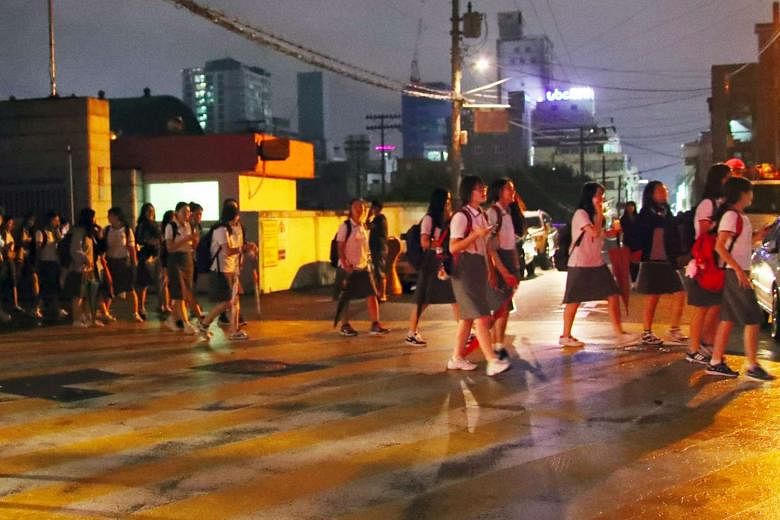SEOUL (AFP/Reuters) - South Korea's nuclear operator said early on Tuesday it suspended operation of four reactors at a nuclear power complex as a precaution late on Monday after two earthquakes struck the country's southeast.
The earthquakes, of magnitude 5.1 and 5.8, occurred on Monday night near the city of Gyeongju, according to South Korea's meteorological agency.
The 5.8 magnitude earthquake was the strongest recorded in South Korea, an official at the Korea Meteorological Administration (KMA) said.
"It was the biggest quake ever to hit the country," Yoo Yong Gyu, a KMA official, told reporters, adding the tremor was "felt all across the country".
Two injuries had been reported as a result of the quake, but no serious damage had been immediately reported, the agency said.
State-run Korea Hydro and Nuclear Power Co shut down the Wolsong No 1, Wolsong No 2, Wolsong No.3 and Wolsong No 4 reactors, with a combined capacity of 2,779 megawatts, an official with the operator said.
It was not immediately clear when the four reactors would restart.
The shutdown of the four takes the number of reactors offline in the country to seven, according to KHNP website.
KHNP, owned by state-run utility Korea Electric Power Corp (KEPCO), operates 25 nuclear reactors in Asia's fourth-largest economy.
The previous record in the South was a 5.2-magnitude quake that hit the sea off the south-eastern port of Uljin in 2004 and a quake of equal magnitude in the eastern mountainous region of Sokri in 1978.
Monday's second quake hit at around 8.30pm (7.30pm Singapore time), with the epicentre near the south-eastern city of Gyeongju, the KMA said.
On Friday, USGS reported a 5.3-magnitude "artificial earthquake" in North Korea, that was in fact a nuclear test.
Emergency centres across the South were flooded by tens of thousands of calls seeking information, Yonhap news agency said, adding train services in some regions were temporarily delayed.
Local nuclear reactors were operating without disruption, it said, citing officials at Korea Hydro & Nuclear Power.
The country's largest mobile app used by 40 million - KakaoTalk - partially went down with many unable to access the service, the company said, apparently due to heavy traffic.
The country's social media was also flooded with images of shattered storefront windows and people rushing out of buildings and apartments in panic, some with children in arms.
TV stations showed video footage of computers violently shaking at a local Internet cafe, students rushing out of schools, and products falling off shelves at a store.


